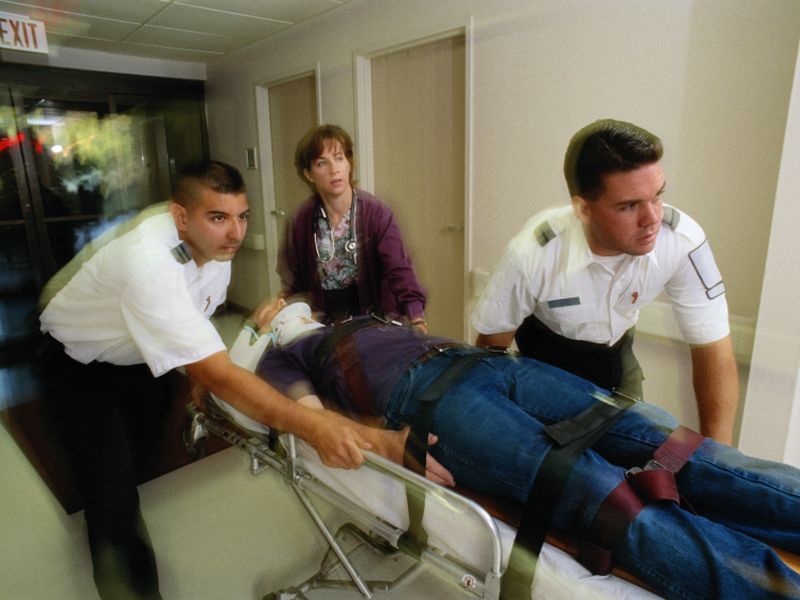On Hospital Wards, Affected person Crises Could Have 'Domino Impact'

TUESDAY, Dec. 27, 2016 (HealthDay Information) -- Hospitalized sufferers have a better threat of cardiac arrest and transfers to intensive care in the event that they're in wards when different sufferers have not too long ago suffered comparable emergencies, a brand new research suggests.
"This could function a wake-up name for hospital-based physicians," research writer Dr. Matthew Churpek, an assistant professor of medication on the College of Chicago, stated in a college information launch.
"After caring for a affected person who turns into critically unwell on the hospital wards, we should always routinely examine to see how the opposite sufferers on the unit are doing," he stated.
"Following these high-intensity occasions, our to-do listing ought to embrace an intensive evaluation of the opposite sufferers on the unit, to verify none of them are liable to slipping by the cracks," he added.
Churpek's workforce tracked outcomes for grownup sufferers who have been admitted to the College of Chicago Drugs from 2009 to 2013. The researchers centered on 13 wards of about 20 beds every, and regarded for what occurred within the six hours after one affected person on the ward skilled a "essential occasion" -- akin to cardiac arrest, dying or switch to an intensive care unit (ICU).
The chance of cardiac arrest or an ICU switch for an additional affected person was better when one essential occasion occurred within the six earlier hours or multiple occasion occurred, in contrast with no essential occasions, the findings confirmed.
After one affected person on a ward skilled a medical disaster, the percentages second affected person may additionally accomplish that throughout the subsequent six hours rose by about 18 %, the research discovered. Two such occasions inside a six-hour time interval bumped up the percentages for a disaster in a 3rd affected person by 53 %, the researchers stated. These dangers tended to be increased if the occasions occurred at night time versus the daytime.
Examine co-author Dr. Samuel Volchenboum stated, "We suspected this phenomenon primarily based on our personal anecdotal expertise. However till we had entry to a big, well-curated research-data warehouse, we could not carry out a research like this." Volchenboum directs the college's Middle for Analysis Informatics.
The research authors burdened that a majority of these emergency occasions are comparatively uncommon on most hospital wards. Regardless that the research included about 84,000 sufferers over the four-year span, solely about 5 % have been transferred to an ICU or skilled in-hospital cardiac arrest, in accordance with the report.
Sufferers who suffered such occasions tended to be older and male, and had been within the hospital for a mean of almost two weeks previous to the occasion. That is 4 occasions longer than individuals who did not expertise these crises, the researchers famous.
The research was funded by the U.S. Nationwide Coronary heart, Lung, and Blood Institute and was revealed Dec. 27 within the Journal of the American Medical Affiliation.
-- Randy Dotinga

Copyright © 2016 HealthDay. All rights reserved.
SOURCE: College of Chicago, information launch, Dec. 27, 2016
No comments:
Post a Comment